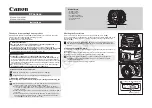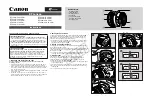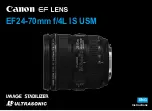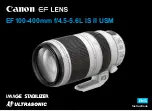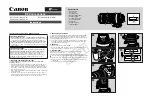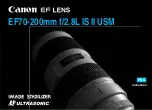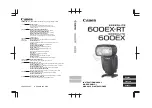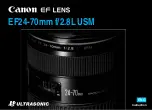
J
Phenomena inherent to CCD imaging device
The following phenomena are inherent to a charge coupled device imaging element and do not indicate malfunction.
1) Smear and blooming
Vertical bands are visible when a strong light enters the scene. Adjust the camera aiming direction carefully to
avoid strong direct or reflected light.
2) Fixed pattern noise
High ambient temperature can cause fixed pattern noise to appear throughout the scene.
3) Moire
Interaction between patterns can produce an additional "phantom" pattern to appear. The CCD picture elements
(pixels) are arranged in a pattern, which can interact with a pattern in the scene (e.g., a performer wearing a finely
striped necktie) to result in a Moire pattern. The effect should be considered when selecting costumes, props and
other scene elements.
4) Ghosting
Strong direct or reflected light near an object of interest can cause ghosting of the object to appear in the picture.
The effect is more obtrusive with certain iris settings and lens types. Select the scene layout and camera pointing
direction carefully in order to avoid this effect.
5
)
White spot
Imperceptible white spots may rarely come up on the screen due to cosmic rays and so on. It becomes easy to
appear when the sensitivity of the camera is raised in the operation at the high temperature.
Combination with a microscope
The following phenomena occur by combining a camera and optical apparatus and do not indicate malfunction.
1) Vignetting
Depending on a microscope, light may enter into a camera at an angle larger than a lens for large view reservation,
and the portion which becomes dark at the screen upper and lower ends may occur.
This phenomenon can be
reduced by the shading compensation function of a camera. However, this phenomenon cannot be rectified
completely.
When accessories, such as a relay lens, are prepared for the microscope, vignetting may improve
optically.
Summary of Contents for HV-F202SCL
Page 42: ...29 Dimensions ...



























